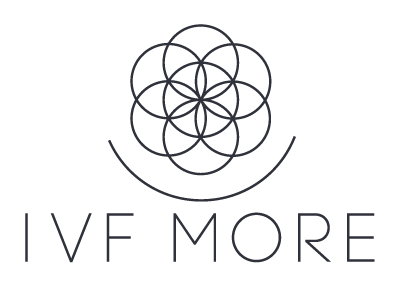IVF MORE® for Endometriosis Patients: How the Process is Adapted for Better Outcomes
March 2025

Endometriosis is one of the leading causes of infertility in women of reproductive age. It is estimated that between 30% and 50% of women with this condition have difficulty achieving pregnancy. This condition, characterized by the growth of endometrial tissue outside the uterus, not only causes chronic pain and other debilitating symptoms but can also directly affect egg quality, ovarian function, and endometrial receptivity.
In this context, IVF MORE® presents itself as an advanced and hopeful alternative for those diagnosed with endometriosis. Unlike traditional in vitro fertilization (IVF) treatments, IVF MORE® integrates regenerative medicine, innovative technologies, and a personalized approach tailored to the specific needs of each patient—especially those with complex conditions such as endometriosis.
Understanding Endometriosis and Its Relationship with Infertility
Endometriosis occurs when tissue similar to the lining of the uterus (endometrium) grows in other parts of the body, such as the ovaries, fallopian tubes, bladder, or intestines. This tissue responds to the monthly hormonal cycle, which can cause inflammation, intense pelvic pain, irregular bleeding, and, in many cases, the formation of adhesions or cysts known as endometriomas.
From a reproductive perspective, endometriosis affects fertility in several ways:
- Deterioration of egg quality: Chronic inflammation and oxidative stress caused by endometriosis negatively impact the eggs, reducing their ability to be fertilized.
- Obstruction or alteration of the fallopian tubes: Adhesions can hinder the meeting of the egg and sperm.
- Unfavorable endometrial environment: The uterus may become less receptive, reducing the chances of proper embryo implantation.
Faced with this scenario, assisted reproductive treatments become a key tool, and among them, IVF MORE® stands out for its ability to address these challenges.
What Is IVF MORE® and Why Is It Ideal for Endometriosis Patients?
IVF MORE® (Magnetic Ovulatory Restoration) is a patented treatment that incorporates regenerative medicine techniques and genetic micromanipulation to improve egg quality, increase embryo viability, and optimize endometrial conditions. It was specifically designed for patients with poor egg quality, such as those with advanced maternal age, endometriosis, polycystic ovary syndrome (PCOS), or multiple failed IVF attempts.
In women with endometriosis, IVF MORE® offers clear advantages by addressing the main effects of this condition from different angles:
- It improves the quality of eggs affected by inflammation.
- It optimizes the environment in which embryos develop, enhancing their viability.
- It prepares a more receptive endometrium for implantation.
Below, we explain step by step how the IVF MORE® process is adapted for women with endometriosis.
IVF MORE® Process Adaptations for Endometriosis Patients
1. Controlled and Personalized Ovarian Stimulation
The process begins with a carefully designed hormonal stimulation tailored to each patient. In women with endometriosis, protocols are used to obtain the highest possible number of eggs without exacerbating inflammation or associated symptoms.
Ovarian response is closely monitored to avoid complications such as overstimulation or the growth of endometriomas.
2. Metabolic Diagnosis of Eggs
Once the eggs are collected, a thorough evaluation of their metabolic health is performed. Through ATP analysis (cellular energy) and other biomarkers, those with the highest potential to develop into viable embryos are identified.
This step is crucial in women with endometriosis, whose eggs often present structural and energetic alterations that reduce their quality.
3. Oocyte Restoration
Eggs that show deficiencies undergo a “repair” process through the infusion of energy factors and biochemical components obtained from the patient’s own cells. This intervention helps improve the internal machinery of the egg, promoting more effective cell division and reducing the risk of genetic abnormalities.
For endometriosis patients, this stage represents a substantial difference from traditional treatments, which usually do not intervene in the quality of the egg once it has been extracted.
4. Fertilization with Advanced Techniques
In IVF MORE®, the PICSI method (Physiological Intracytoplasmic Sperm Injection) is used instead of conventional ICSI. This technique selects higher-quality sperm by observing their binding with hyaluronic acid, which increases the chances of successful fertilization.
This step ensures that only the most suitable gametes are involved in the process, reducing the rates of abnormal embryos.
5. Magnetic Field Culture
One of IVF MORE®’s exclusive innovations is embryo culture in a controlled magnetic environment. This setting improves cellular energy use, optimizes embryo division, and promotes the development of healthy blastocysts.
In patients with endometriosis, whose eggs may have lower division capacity, this technology provides a significant advantage to improve viable embryo rates.
6. Endometrial Preparation with Regenerative Medicine
One of the most important challenges in women with endometriosis is endometrial receptivity. For this reason, IVF MORE® includes regenerative therapies such as platelet-rich plasma (PRP) infusion or mesenchymal stem cells to improve endometrial thickness and quality.
These interventions increase the chances of successful implantation, especially in patients with a history of repeated transfer failures.
Cases Where IVF MORE® Makes the Difference
IVF MORE® is particularly indicated for endometriosis patients who:
- Have had multiple unsuccessful IVF cycles.
- Present poor-quality or genetically abnormal embryos.
- Have low ovarian reserve and want to avoid egg donation.
- Experience implantation failures despite having healthy embryos.
- Wish to preserve their own genetic material without using donor gametes.
Thanks to its comprehensive approach, IVF MORE® allows them to attempt pregnancy with their own eggs—even when other techniques have failed.
Promising Results
In preliminary studies and clinical cases treated with IVF MORE®, the results have been promising:
- A decrease in genetically abnormal embryos from 82% to 28% has been observed.
- Pregnancy rates in women with endometriosis double compared to traditional IVF cycles.
- Pregnancy has been achieved even in women with “last resort” diagnoses.
These advancements are possible thanks to the combination of science, biotechnology, and a deeply human approach that places each patient at the center of treatment.
A New Hope for Women with Endometriosis
Endometriosis does not have to be a definitive obstacle to achieving pregnancy. Thanks to techniques like IVF MORE®, women facing this complex condition can count on a real, safe, and scientifically validated alternative to improve their fertility.
IVF MORE® represents the future of assisted reproduction, integrating regenerative medicine, precise diagnostics, and cutting-edge technology to provide new opportunities to those who thought their only option was to give up on having a baby with their own genetics.
If you’ve been diagnosed with endometriosis and have struggled to achieve pregnancy, we invite you to learn more about IVF MORE®. Our team of specialists is ready to guide you in the next step toward the pregnancy you’ve long hoped for.
